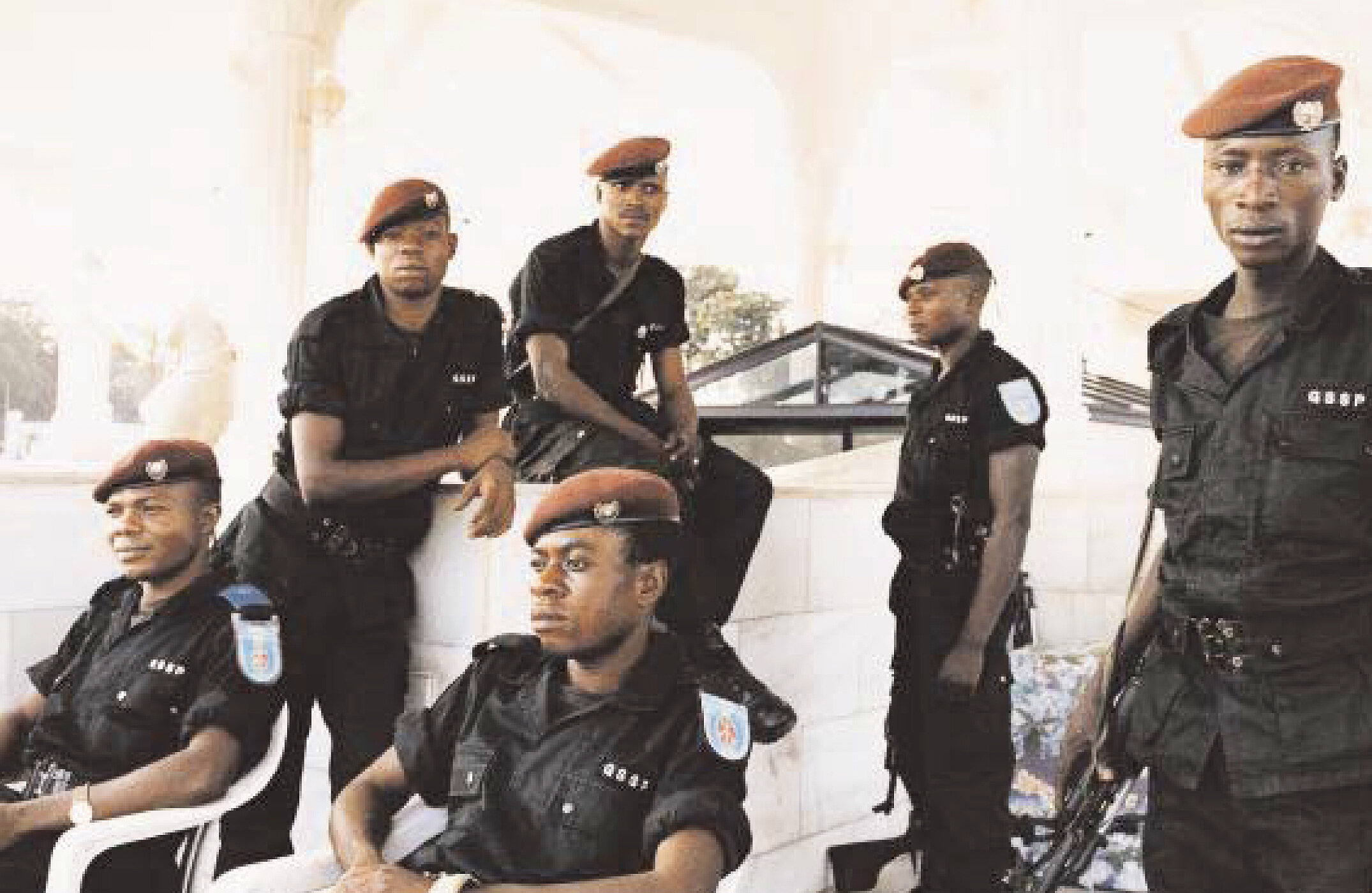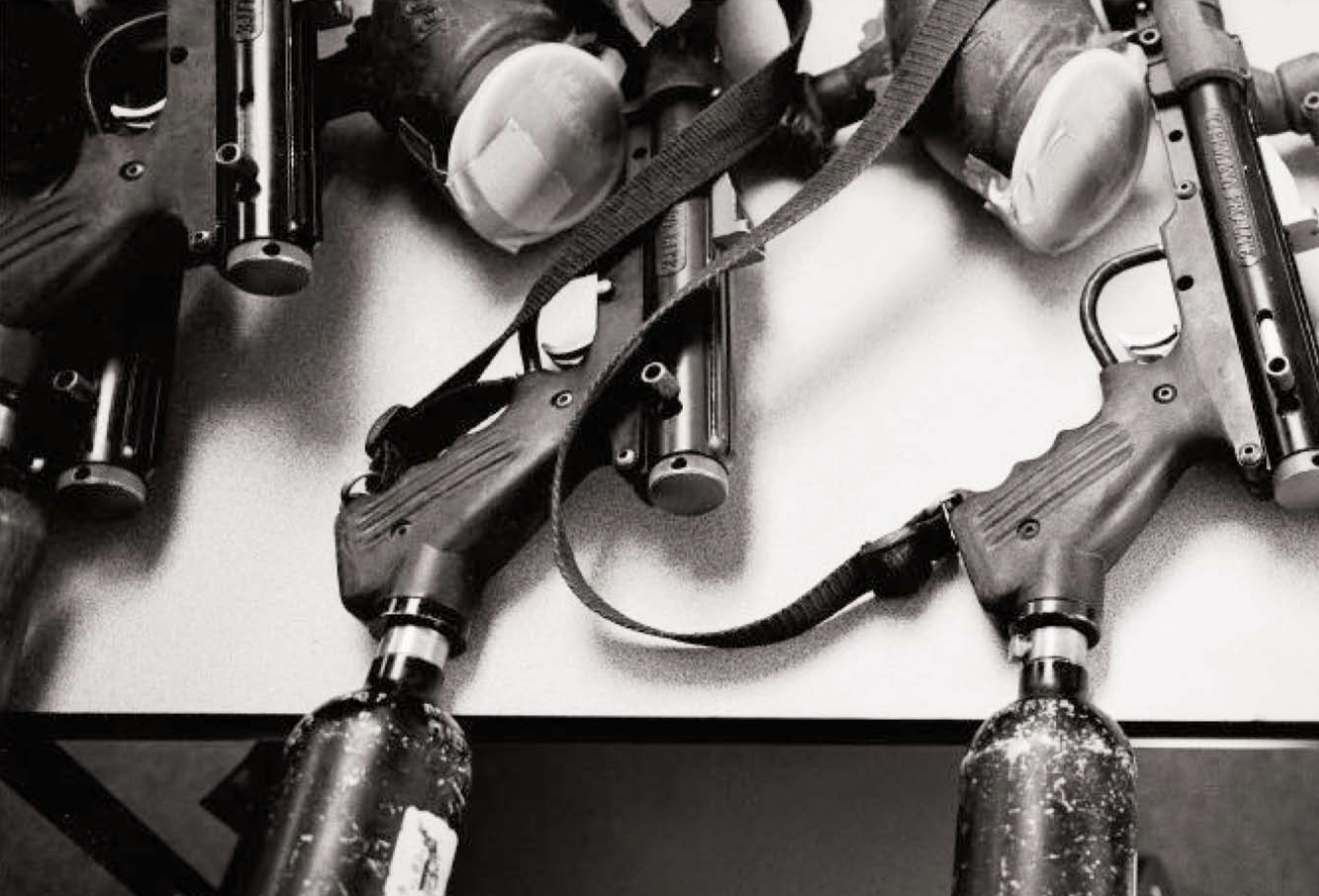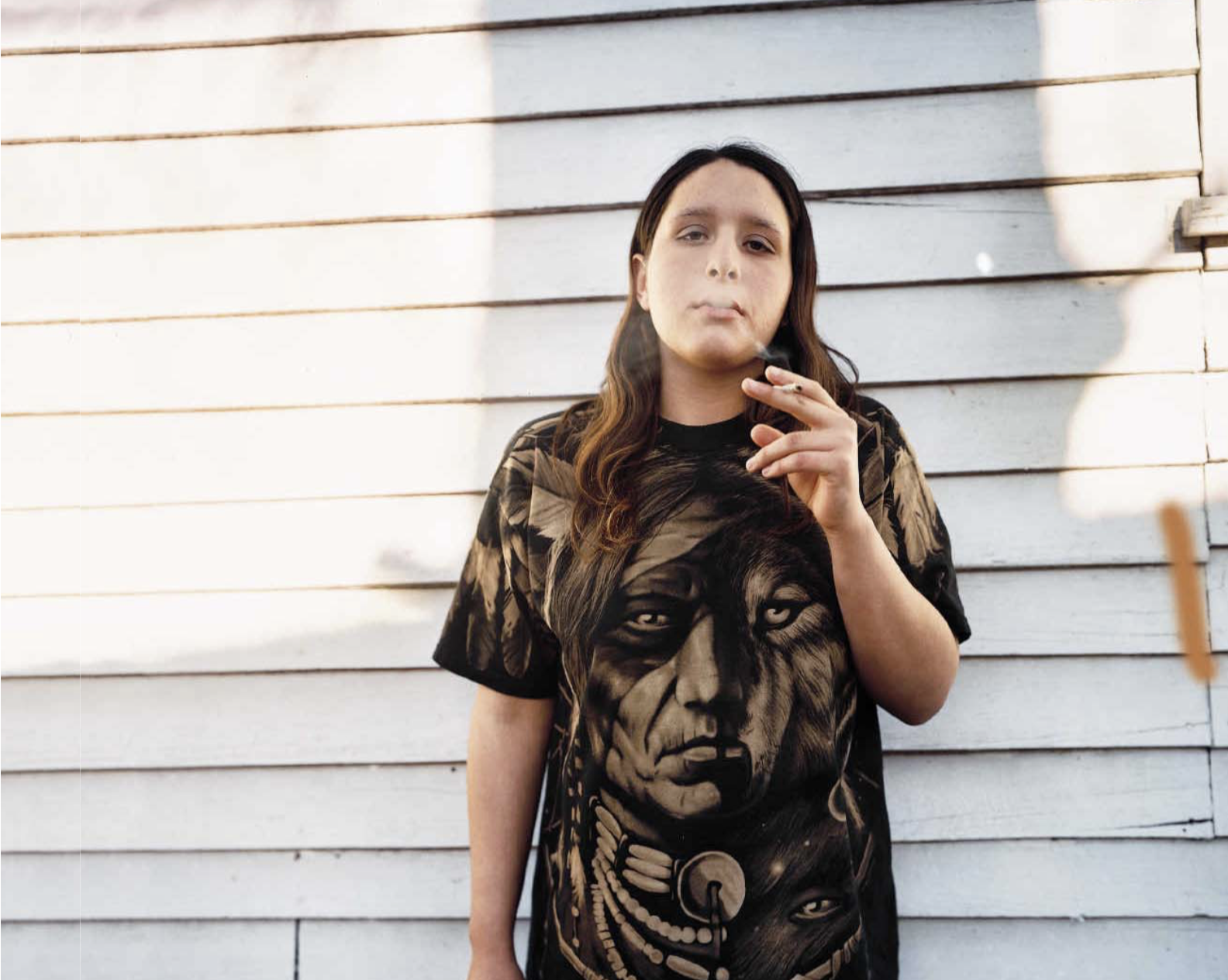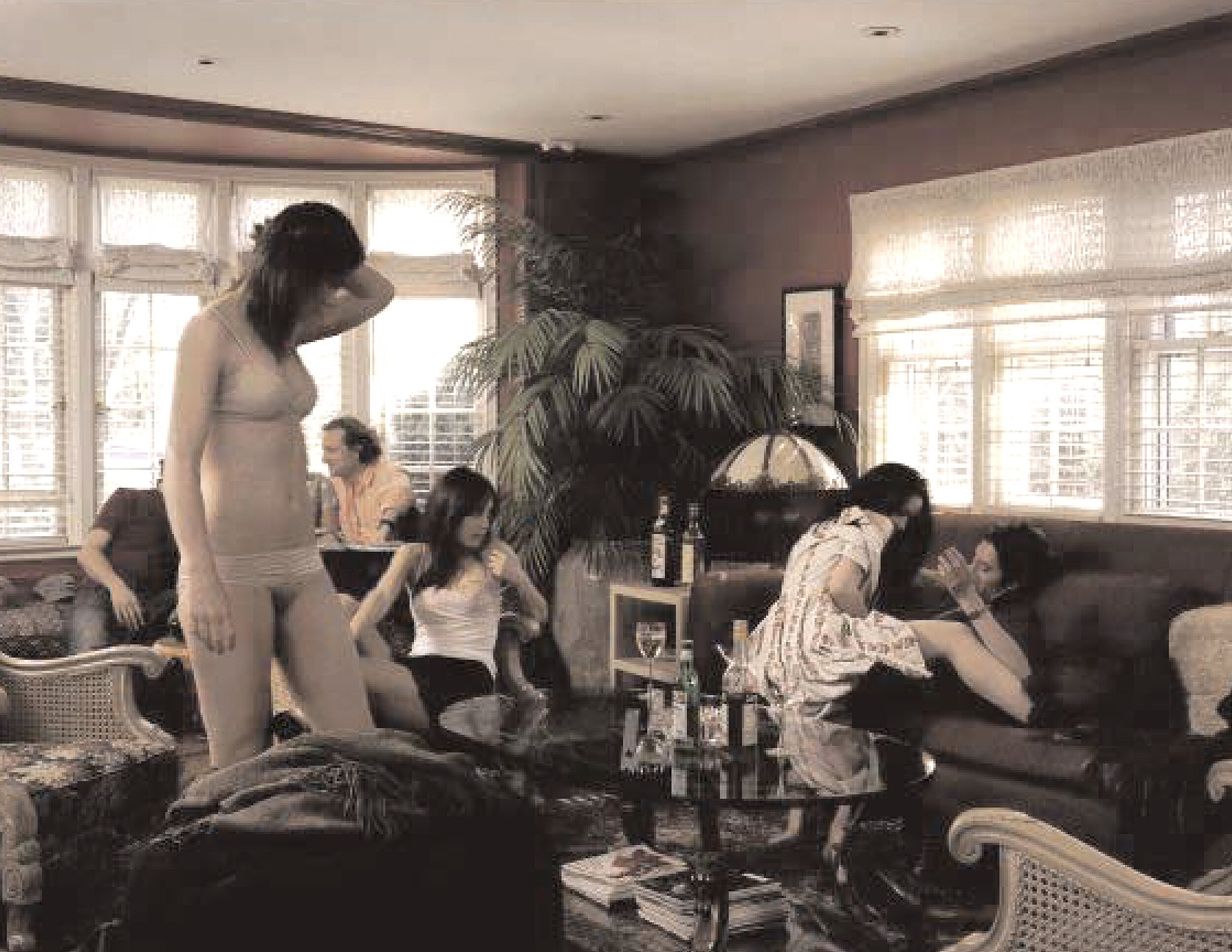Patriot Games
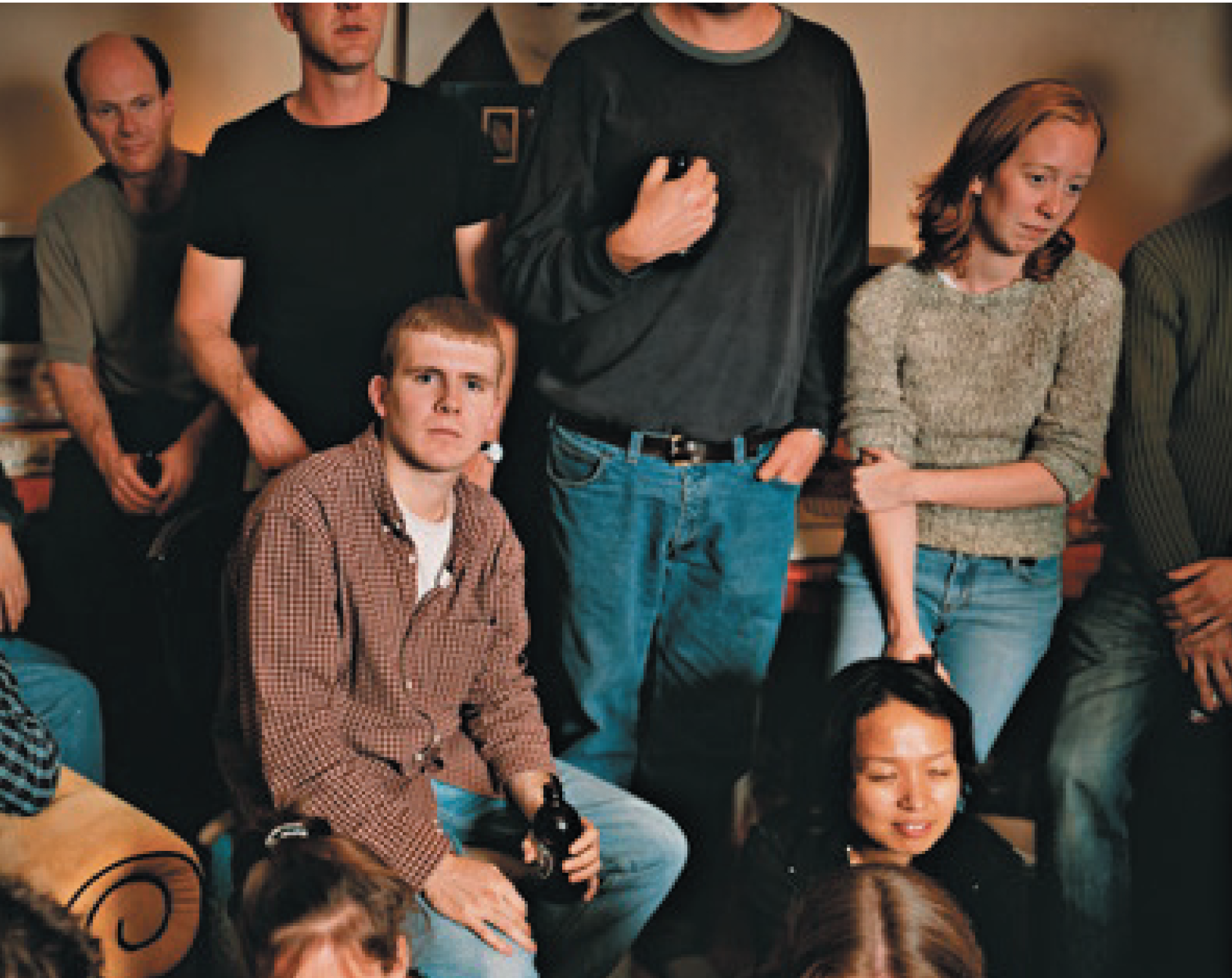
DETAILS MAGAZINE
FEBRUARY 2005
Photo by Reuben Cox
THE CHOW HALL AT FORT BRAGG WAS DECKED OUT FOR CHRISTMAS. MOST OF THE grunts, including Jeremy Hinzman—a U.S. Army weapons technician—weren’t paying much attention to the CNN broadcast on the hall’s TV set. But Hinzman looked up when men all around him started cursing, groaning, and yelling “Let’s kick some ass!” CNN was reporting that his unit, part of the 82nd Airborne Division, was deploying to Iraq. Hinzman, a thoughtful 26-year-old who had delved into Zen Buddhism while growing up in Rapid City, South Dakota, had joined the Army three years earlier. He was raised by his grandparents; his birth certificate lists no father, and his troubled mother hovered on the periphery like a wayward sister. Hinzman saw the Army as a way to gain stability in his life and to earn money for college, which he hadn’t been able to afford.
But he found himself disturbed by the aggression and violence in boot-camp exercises, from the bloody chants of “Kill, kill, kill we will!” to the target shooting at human silhouettes. He quickly realized, after only a month, that he was a pacifist. He came to feel that killing, for any cause, was wrong, a conviction that deepened when he began attending Quaker meetings with his wife, whom he had married a week before joining the service. Hinzman had applied for conscientious-objector status, but while the Army was processing his application, he was sent to Afghanistan. The military turned down his application in April 2003. His unit returned to Fort Bragg that July. Now here he was, just months later, again being ordered to war.
Over that Christmas holiday, Hinzman and his wife, Nga Nguyen, who had been born to Vietnamese parents in Laos, and their infant son, Liam, visited his family in South Dakota. Though he had reluctantly served in the mess hall in Afghanistan, he believed the U.S. invasion of Iraq was immoral and unjust, and he was unwilling to take part in it.
With only two weeks to go before his unit would be sent overseas, he and his wife lay in bed at night trying to decide their fate. They returned to Fort Bragg and packed their belongings in a friend’s basement. Then they shifted $20,000 in savings to his wife’s bank account, stuffed their Chevy Prizm with food and clothes, and hit the road at midnight on January 2, 2004. They headed north to the Canadian border.
DESERTION IN TIME OF WAR IS A CRIME PUNISHABLE BY DEATH (THOUGH THE United States hasn’t exercised that option since 1945). If Jeremy Hinzman is caught, he will likely face one to five years in prison. To avoid that fate, he and two other U.S. military deserters are now seeking asylum in Canada as political refugees, saying that if they are forced to return home they will be persecuted for their beliefs. (Five other U.S. deserters have also crossed into Canada but have not sought asylum.)
This February, Canada’s Immigration and Refugee Board, which heard Hinzman’s case in December, is expected to make its decision on his claim and to begin hearing the cases of the two other deserters. Antiwar activists and lawyers say the board’s decisions could lead to a flood of new war dodgers in Canada—or chill others who are contemplating crossing the border.
During the Vietnam War, an estimated 50,000 draft dodgers fled to Canada. By 1969, with Vietnam casualties mounting, Prime Minister Pierre Trudeau opened the doors to these young Americans, saying that Canada should be “a refuge from militarism.” Today the country has tighter policies in place for all immigrants.
Although Canada has stayed out of the war in Iraq, its predominantly liberal government is seeking renewed ties to the U.S., so the situation is politically delicate. The final decision, however, will be left up to the minister of immigration, who presides over the Immigration and Refugee Board.
Northwestern University sociology and law professor John Hagan, who ran off to Alberta in 1969 to avoid the draft and recently wrote Northern Passage: American Vietnam War Resisters in Canada, says the Canadian government is under internal political pressure to allow the current resisters to stay. “It’s going to be hard not to find a way to accommodate them,” says Hagan, who became a Canadian citizen before returning home in 1977, facing no charges because he fled before he was drafted. “Kind of like the policy toward Cuba. It’s another way for Canada to be different. But there’s a question in the wind. If Canada allows Jeremy and the others to stay, would that be a good thing?”
If the minister says no, Hinzman and the others will certainly appeal, a process that could take years. That might ultimately allow the Canadian government to grant them permanent-resident status, not as political-asylum seekers but on the basis of humanitarian needs, since they will likely have started families and become fixtures in the community.
As U.S. coalition forces confront troop shortages in Iraq, many soldiers are closely watching the outcome of Hinzman’s case. And with the Army facing resistance from former soldiers it has ordered to return to duty, antiwar activists in Canada and the United States are preparing a new underground railroad to freedom. An estimated 1,800 soldiers in the U.S. Individual Ready Reserve have asked for exemptions or delays. And of 2,500 who were expected to report for duty by this past November, 733 simply did not show up. Many of them, say lawyers and activists, would consider Canada an option.
“Soldiers are saying ‘No way do we want to fight in an immoral war,’ ” explains James Clark, 29, a fresh faced grad student who helps coordinate the Toronto Coalition to Stop the War. “They’re saying ‘We’re the ones being screwed.’ We need to build these bridges for more of them to come over.”
A growing distrust of the war has given rise to thousands of sympathizers in the States as well. Sharon Kufeldt, a national board member of Veterans for Peace, says her group has grown from 550 members three years ago to almost 5,000 this year, as a result of the Iraq war. Another group, Military Families Speak Out, made up of 1,700 families who have lost loved ones in military conflicts, has called for an end to the war. But among the most outspoken of the Stateside activists is Mike Hoffman, a former Marine lance corporal who took part in the Iraq invasion and, after his honorable discharge, started Iraq Veterans Against the War with seven members in July. It now has more than 100 members. He knows how difficult it is to choose to leave the military, let alone your home.
“I see leaving the country as an absolute last resort,” says Hoffman, who opposed the war when he was sent to Iraq. “I almost wish I had done something like that. But it’s hard leaving your friends. It’s one of the hardest things to deal with as a soldier. I really respect Jeremy’s courage. But in the end, he still deserted his fellow servicemen. And I know he has mixed feelings.”
As a deserter from the U.S. Army, Hinzman has actually become something of a celebrity among Canada’s peace activists and the thousands of Vietnamera draft dodgers who made Toronto their home more than 30 years ago. He travels the country speaking out; he’s appeared at colleges, union meetings, and an antiwar rally. His new friends hold benefit concerts and press conferences in his name. For many here, and back home, he has become the face of the war over The War, scorned in New York Post editorials, praised and demonized on dozens of Web sites. His supporters see him as a principled pacifist, a soldier willing to stand up to President Bush in defiance of an illegal invasion that has left more than 1,300 Americans dead, alongside some 17,000 Iraqi civilians. All he did, they say, is what the soldiers at Abu Ghraib failed to do: refuse an illegal order.
But to their detractors, Hinzman and the other seven soldiers are simply cowards who deserted their country in a time of war. Some critics say they should be brought back and shot. Bill O’Reilly has openly mocked them and called for a boycott of Canadian goods unless they are extradited. They have been targeted on the Web, where there are offers to pay a bounty hunter to kidnap them and bring them all back to face a court-martial.
JEREMY HINZMAN EMERGES FROM THE BASEMENT APARTMENT HE SHARES with his wife and son on a tree-lined Toronto street not far from the broad campuses of two universities. It is Tuesday, November 2, and Hinzman is expected at an antiwar house party to view the U.S. election returns. His hazel eyes are watchful beneath a blue knit cap as we walk to a nearby café for a meal. Hinzman is lanky, with a runner’s build (he has completed two marathons since arriving here 11 months ago). He has a high forehead—his hair is still cut in a military trim—and he grows talkative as he tears into four falafels. He is less interested in explaining his trek to Canada, which he entered by way of Niagara Falls, than in talking about his positions on the war and President Bush.
“To suddenly say Saddam Hussein was this big, imminent threat was bogus. It didn’t hold water,” he says, his eyes narrowing. “I already thought all war was stupid. The only way I could complain about it was to not be a part of it. I figured, I’m not gonna go kill people, and I’m not gonna get killed so people can drive Ford Expeditions at $1.30 a gallon. It’s subsidized gas, subsidized with other people’s blood. Sure, that’s shirking my duty as a soldier. But what’s going on over there is criminal.”
Hinzman, who seems more like an AWOL college kid in a well-worn red sweatshirt, blue running pants, and a G-Shock wristwatch, laces his talk with references to Proust, Joyce, and the book of Ecclesiastes. He is selftaught, more philosopher than warrior. But his beliefs can be contradictory. Though he deserted his unit, he says, he’d “be more than happy to be a combat medic in Iraq with bullets whizzing over me. If I get killed I’m not going to know the difference.”
The argument that the Iraq invasion broke international law is the basis of Hinzman’s claim to be a refugee from persecution, which is at the heart of his application for political asylum. His attorney, Jeffry House, who fled to Toronto himself in 1970 to avoid the Vietnam draft, points out that a war must be defensive or approved by the United Nations Security Council to conform to international law. The United States, of course, did not get this approval.
House made this argument, which many legal analysts consider a long shot, on behalf of Hinzman in the December hearing before the Canadian Immigration and Refugee Board. He will make the same argument in February on behalf of two others, Brandon Hughey, 19, an Army private from San Angelo, Texas, and Dave Sanders, 20, a Navy serviceman from Bullhead City,
Arizona. (Three other known U.S. military deserters who have fled to Canada have not yet made official claims as refugees because they have dual citizenship, and two more are considering their options.) The board has said it will not debate the legality of the Iraq war. But that didn’t stop House from pressing the issue in December, when he presented a former U.S. Marine staff sergeant who testified that his unit killed at least 30 unarmed Iraqi civilians in 2003 and routinely shot and killed the wounded. House is essentially putting the war itself on trial.
“Nobody denies if these guys were in Iraq and their commanding officer said ‘Shoot that baby in the head,’ that would be a fundamental violation of international law,” says House, a broad-faced, brown-and-gray haired man with the demeanor of a kindly doctor. “If you said no, and the U.S. tried to prosecute you, you could become a refugee. I’d go farther and say if the war is not legal then all actions undertaken in it are analogous. Our view is that it is wrong to put people in jail for refusing to violate international law. I have to convince the board that this is persecution, not prosecution. On paper, it’s a good case.”
But Hinzman and his fellow war resisters were not forced into the military. They joined an all-volunteer army. And Hinzman says that at first he felt there was “something noble about renouncing any sort of ego to fulfill the mission” at hand. Having grown up fatherless and with an unstable mother, he found it comforting that his food, clothes, and housing were taken care of for him. He shared a sense of purpose, he says, with the other grunts with whom he spent 14-hour days in sweaty training. But it was the Army’s way of desensitizing soldiers to violence, as they went from shooting at circles to shooting at progressively human-shaped targets, that shook him.
“What surprised me is how I had to confront my own inhibitions,” he says as we walk the leaf-littered streets near his home. “When I’m told to stab a bayonet into a dummy, that’s one thing. But when I’m told to do it with a smile on my face while chanting ‘Kill! Kill!,’ that’s another. I figured I could do it, but I wasn’t able to. If that’s a human weakness, not to be able to kill people, then sign me up. I’ll be the president of the weakness club.”
Still, Hinzman did well and was promoted to specialist. He was supposed to enter the elite Ranger school, but he decided to file for conscientious objector status in August 2002. He says that his ambivalence was disturbing him, and that he felt he would be “living a lie” if he progressed further. While the Army processed his application, he was sent to Afghanistan, where he mostly washed dishes, an agreed-upon arrangement pending the outcome of his application. The Army rejected his application last year because Hinzman admitted to his commanding officer that if his unit were attacked, he would fight in self-defense, a stance at odds with the military’s notion of pacifism. “I told them that if my camp was attacked, I’d be shirking my duties as a soldier if I didn’t help defend it,” he says. “That is a completely different thing than taking part in a raid, which is a premeditated act of collective murder.”
The U.S. Army recognizes that soldiers, even voluntary ones, can develop a conscientious objection to war. Since the Iraq war began, says the GI Rights Hotline, which counsels service members on how to leave the military, calls have exploded from 17,267 in 2001 to 28,822 in 2003. The Army’s own recent survey showed 72 percent of soldiers reporting low or very low unit morale (the suicide rate is at an all-time high, with 23 soldiers killing themselves in Iraq and Kuwait in 2003). The Pentagon says more than 5,000 servicemen have deserted since the war began. Most are believed to be living underground in the United States and can be expected to be watching the Canada cases. (House says about 60 AWOL soldiers, some hiding out in Mexico, have contacted him, some looking to come to Canada.)
“Today’s Army is full of economic conscription,” says Steve Morse, of the Central Committee for Conscientious Objectors, in Oakland, California. “Young people join to get job skills, money for college. They don’t join to fight. The ads that the recruiters show are full of bonding. There’s no footage of combat. It’s a bait and switch that is costing young people their lives.”
HINZMAN, HIS WIFE, HIS YOUNG SON, AND HIS MOTHER, WHO IS WEARING a T-shirt that reads PEACEMONGER and has embraced her son’s pacifism, are wary when they arrive at the election-night party at the home of James Clark, the grad-student antiwar activist. Not because they think Bush will win, a result they believe would only strengthen their position in Canada, where popular antiwar sentiment helped keep the country out of the war, but because they are tired of the constant attention.
About 50 peaceniks, some in gray ponytails, others in flowery granola dresses, are milling around tables, looking over stacks of leaflets and copies of the Socialist Review, peering at the Lenin books and the complete series of International Socialism periodicals on the wall. The kitchen counter is set up as a bar, with paper signs hawking $3 beers. In a back corner, near the refrigerator, a large turtle is floating in a tub.
Clark, who has befriended Hinzman and some of the other Americans and landed them speaking gigs at rallies, comes over to where Hinzman is playing on the floor with his son. “Did you hear?” Clark asks with a broad smile. “Another one came over today in Vancouver.”
Hinzman and his fellow deserters, Brandon Hughey, the Army private from Texas, and Dave Sanders, the Navy serviceman from Arizona, rely on Clark and other activists to keep their cause in the public eye, and thus keep political pressure on the government. They also rely on them, in varying degrees, for food and housing, and for the several thousand dollars the groups have raised through rallies and concerts to help pay their legal fees.
Clark cheerfully brags that his group put on massive protests that pressured the Canadian government to stay out of the war. He has helped set up the War Resisters Support Campaign for Hinzman and the others. “Our purpose,” he says, “is to build broad political support for them to stay.”
For Hughey, the trip north has already proved problematic in more ways than he had imagined. Stationed in Fort Hood, Texas, Hughey fled his unit in March, the night before it was to depart for Iraq. He did so, he says, after deciding that the Iraq war was illegal and unjust.
He made his way to Canada via the Internet, where he found a man named Carl Rising-Moore, a Vietnam vet, peace activist, and one-man Harriet Tubman for deserters. Rising-Moore drove Hughey across the border at Niagara Falls and then helped him get lodging with a Quaker couple in St. Catharines. Hughey’s arrival, however, was anything but discreet. A Canadian Broadcasting Company reporter filmed his border-crossing and dozens of newspapers covered it, beginning Hughey’s new life as an unintentional spokesman, like Hinzman, for the antiwar effort.
Hughey’s father, who was at first angry with his son but has come to share his opinion on Iraq, complained to a Texas newspaper that his son was being used as a pawn by “an anti-American, anti-Bush camp.” For his part, Hughey, who has a doughy face and farm-boy-honest looks, is a bit taken aback by the socialists and anti-globalists who surround him. “I try to keep that separate and, when I give talks, just to focus on my own situation, my objections to the war,” says Hughey, shyly looking at the floor. “It is something I keep an eye on, I’ve helped them, but they’ve certainly helped me.”
As the election returns come in, showing dismally for John Kerry as early as 11 P.M., most of the hard-core anti-Bush crowd has moved into the front TV room, where they’ve turned off the news channels and are laughing hard at Jon Stewart’s faux coverage. Hughey sits glumly in the middle of the riotous crowd. Hinzman has departed without saying a word. The bowl of $2 NO WAR buttons remains as full as when the party started.
“It took a long time to get my dad to come around. We both realize I may never be able to go home again,” says Hughey, absently watching Stewart grimace while the room erupts in laughter. “I can’t speak for all soldiers, but for me, if I’m going to take another person’s life or risk losing my own, I have to know it’s for the right reasons. And this war in Iraq, it wouldn’t have been.”
THE MORNING AFTER THE PARTY, HINZMAN STEPS INTO THE DAMP CHILL of the post-election day. His breath is visible. He apologizes sheepishly for leaving without saying good-bye, explaining that the camera crew and another photographer at the party were bothering him by taking pictures of his son. After witnessing the eagerness of his friends at the party last night to embrace so many diverse causes, I wonder whether he ever feels used by them. “Yes and no,” he says, his hands resting on the bike he has wheeled out for his morning ride. “I’d be deluding myself if I said we were all bosom buddies. I realize what I’ve done is give them some focus. But it’s a quid pro quo. Perhaps I’ve helped them, but they’ve certainly helped me.”
Even if Hinzman wins his case, he will probably never be able to visit his family in the United States again. (The Vietnam draft dodgers fought to win the blanket pardon they received from President Jimmy Carter in 1977.) If he loses, he’ll be deported and might go to jail. Unlike Hughey and Sanders, who never obtained U.S. passports, Hinzman has one, and he has considered moving to another country, like France or Switzerland. Of course, there are always legal appeals, which can drag out for years. By then, the Canadian government might be willing to offer residence if the deserters have started families and become members of society.
Hinzman admits he’s disappointed Bush won the election, but he is looking forward to the inevitable bump in sympathy for him and his fellow deserters among the 80 percent of Canadians who oppose the war. He says he will continue to give speeches and interviews for his own sake and because he passionately believes the Iraq war is wrong. But he dislikes being labeled anyone’s hero, and he turns surly when I raise the issue. “I’m not a hero at all. I’m a normal person,” he says, looking down the street as children emerge from their doors to go to school. “Trying to project virtues on me that I don’t have isn’t appropriate. There’s nothing heroic about doing what you feel to be right, but you can’t always help overlapping.”

